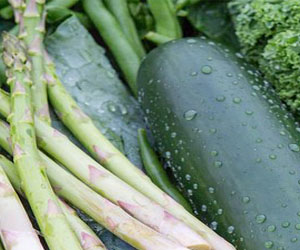


A Guide To Healthy And Inclusive Eating
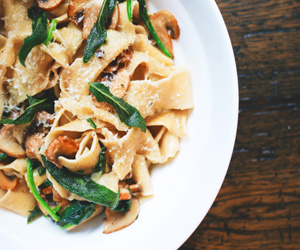
Dietary restrictions have become increasingly prevalent in today's world, with many people making intentional dietary choices for various reasons, including health, ethics, and allergies. These restrictions can range from avoiding specific ingredients or food groups to adhering to cultural or religious dietary practices. In this article, we explore the concept of dietary restrictions, the motivations behind them, and how to navigate them for a healthier and more inclusive approach to eating.
Types Of Dietary Restrictions
Allergies And Sensitivities: Some individuals must avoid certain foods due to allergies or sensitivities. Common allergens include peanuts, tree nuts, dairy, and shellfish. For them, consuming these foods can lead to severe allergic reactions or digestive discomfort.
Religious And Cultural Practices: Many people adhere to specific dietary guidelines dictated by their religious beliefs or cultural traditions. For example, Muslims observe halal dietary laws, while Hindus may avoid beef due to religious beliefs.
Health And Lifestyle Choices: Some people adopt dietary restrictions as a part of a healthy lifestyle. This includes vegetarianism, veganism, or gluten-free diets, often motivated by environmental concerns, animal welfare, or gluten-related health issues like celiac disease or gluten sensitivity.
Medical Conditions: Certain medical conditions, such as diabetes, require dietary restrictions to manage blood sugar levels effectively. Patients with kidney disease may need to limit their potassium and phosphorus intake.
Motivations Behind Dietary Restrictions
Health: Many dietary restrictions are motivated by health considerations. For example, a low-sodium diet can help manage high blood pressure, while a low-carb diet can be beneficial for individuals with diabetes.
Ethics: Ethical considerations drive choices like veganism and vegetarianism. People who choose these diets often do so to reduce their environmental impact, avoid animal cruelty, or support sustainable and cruelty-free practices.
Religious Beliefs: Dietary restrictions rooted in religious beliefs are a way of showing devotion, maintaining spiritual purity, or following sacred texts and rituals.
Allergies And Sensitivities: Individuals with food allergies or sensitivities follow restrictions to avoid allergic reactions, gastrointestinal discomfort, or other adverse health effects.
Navigating Dietary Restrictions
Education: If you have dietary restrictions, it's crucial to educate yourself about the foods and ingredients that align with your dietary choices. Reading food labels and seeking out information from reputable sources can be invaluable.
Communication: When dining out or sharing meals with others, clear communication is key. Informing hosts, waitstaff, or friends about your dietary restrictions ensures that your needs are accommodated.
Recipe Adaptations: Many recipes can be adapted to accommodate dietary restrictions. For example, you can substitute plant-based ingredients for animal products or use gluten-free flour in place of wheat flour in your baking.
Community Support: Joining support groups, online forums, or communities dedicated to your specific dietary restrictions can provide valuable insights, recipes, and support from individuals who share similar dietary challenges.
Consult Professionals: For medical dietary restrictions, consulting a healthcare provider or dietitian can help create a well-balanced and nutritionally sound eating plan that meets your specific needs.
Dietary restrictions are a common and essential aspect of many people's lives, driven by a variety of motivations. Whether you're following dietary restrictions for health reasons, ethical considerations, or cultural and religious beliefs, embracing these restrictions can lead to a healthier, more inclusive, and fulfilling approach to eating. Proper education, clear communication, and community support can help individuals navigate these dietary choices successfully while ensuring that their nutritional needs are met.

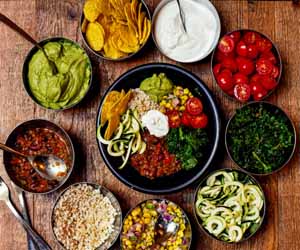
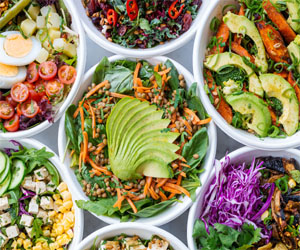


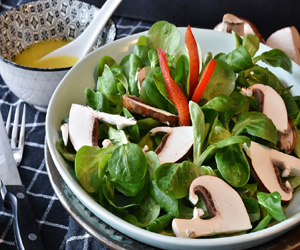
Unprocessed Foods And Their Vital Role In Health
 Rich In Nutrients: Unprocessed foods are loaded with vital nutrients. Fresh fruits and vegetables, for instance, provide an array of vitamins, minerals, fiber, and antioxidants that are essential for overall health. These nutrients are not only abundant but also easily absorbed by the body.
Rich In Nutrients: Unprocessed foods are loaded with vital nutrients. Fresh fruits and vegetables, for instance, provide an array of vitamins, minerals, fiber, and antioxidants that are essential for overall health. These nutrients are not only abundant but also easily absorbed by the body.
Low In Harmful Additives: One of the major drawbacks of processed foods is the presence of artificial additives, including trans fats, high-fructose corn syrup, and excessive sodium. Unprocessed foods are devoid of these harmful additives, reducing the risk of health issues such as obesity, cardiovascular diseases, and high blood pressure.
Balanced Macronutrients: Whole foods contain a natural balance of macronutrients - carbohydrates, proteins, and fats - without an excessive amount of any one component. This balance promotes steady energy levels and helps regulate blood sugar, making unprocessed foods an ideal choice for those concerned about diabetes or weight management.
Nourishing Your Body And Soul
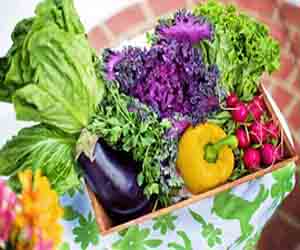 1. Nutrient-Rich Meals: Wholesome cooking allows you to maximize the nutritional value of your meals. By using fresh fruits, vegetables, whole grains, lean proteins, and healthy fats, you ensure that your body receives the essential vitamins, minerals, and antioxidants it needs.
1. Nutrient-Rich Meals: Wholesome cooking allows you to maximize the nutritional value of your meals. By using fresh fruits, vegetables, whole grains, lean proteins, and healthy fats, you ensure that your body receives the essential vitamins, minerals, and antioxidants it needs.
2. Flavorful Dishes: One of the highlights of wholesome cooking is the exceptional flavor of the dishes you prepare. Using fresh and natural ingredients results in meals bursting with taste, aromas, and textures that can't be replicated by processed foods.
3. Control Over Ingredients: Wholesome cooking gives you complete control over what goes into your food. You can avoid excessive salt, sugar, and unhealthy fats, ensuring that your meals align with your dietary preferences and health goals.
The Aromatic Soul Of Mediterranean Cuisine
 Basil: Basil is another herb synonymous with Mediterranean cuisine, particularly Italian dishes like pesto. This herb's sweet and slightly peppery notes add freshness to salads and brighten up sauces. Basil is a staple in the Mediterranean diet and is appreciated not only for its taste but also for its potential anti-inflammatory and antibacterial properties.
Basil: Basil is another herb synonymous with Mediterranean cuisine, particularly Italian dishes like pesto. This herb's sweet and slightly peppery notes add freshness to salads and brighten up sauces. Basil is a staple in the Mediterranean diet and is appreciated not only for its taste but also for its potential anti-inflammatory and antibacterial properties.
Rosemary: With its pine-like aroma and robust flavor, rosemary is a quintessential Mediterranean herb. It's often used in roasting meats and vegetables, infusing dishes with a delightful earthiness. Rosemary's association with improved memory and cognitive function makes it a symbol of both taste and health in Mediterranean cuisine.
Thyme: Thyme's aromatic and slightly minty notes make it a versatile herb in Mediterranean cooking. It's used in a wide range of dishes, from soups and stews to grilled seafood. Thyme is also valued for its antimicrobial properties and potential to boost the immune system.
Mint: Mint is another herb with a strong presence in Mediterranean cuisine. Its refreshing flavor complements salads, sauces, and desserts. Mint tea is a common beverage in the region, celebrated for its digestive and soothing qualities.
Parsley: Parsley, with its fresh and slightly peppery taste, is a ubiquitous herb in Mediterranean cooking. It's used to garnish dishes and is an essential ingredient in many Mediterranean sauces and salads. Parsley is known for its high vitamin K content, contributing to bone health and overall well-being.
 The Art Of Espresso Brewing
The Art Of Espresso Brewing
Brewing the perfect espresso shot is an art that combines precise science and skillful craftsmanship. Several elements must come together harmoniously to create this iconic beverage:
Coffee Beans: The choice of coffee beans is the first crucial step. High-quality beans, often a blend of Arabica and Robusta, are meticulously selected for their flavor profiles. These beans are typically roasted to perfection, ensuring a balance of sweetness, acidity, and bitterness.
Grind Size: The grind size must be tailored to the specific espresso machine. A fine grind is essential for espresso preparation, allowing for optimal extraction.
Water Temperature: The water used for brewing should be at the ideal temperature, usually between 195°F and 205°F (90°C to 96°C), to extract the full spectrum of flavors from the coffee.
Brewing Time: The brewing time is typically around 25-30 seconds, during which hot pressurized water is forced through the coffee grounds. This process ensures that the flavors are extracted efficiently, resulting in a rich and concentrated shot.
Harnessing The Potential Of A Plant-Based Lifestyle
 Sustainability And Environmental Impact
Sustainability And Environmental Impact
The environmental benefits of a plant-powered lifestyle are substantial. Animal agriculture is a significant contributor to greenhouse gas emissions, deforestation, and excessive water consumption. By reducing the demand for meat and dairy products, plant-powered individuals contribute to a more sustainable planet. This lifestyle choice conserves resources, reduces carbon footprints, and helps protect the world's ecosystems.
Ethical Considerations
For many, the decision to be plant-powered aligns with ethical values. Concerns about animal welfare and the ethical implications of consuming animal products have led to a growing movement in favor of plant-based living. By adopting a plant-powered lifestyle, individuals take a stand against the practices associated with factory farming, promoting more humane and compassionate treatment of animals.
Plant-Powered Culinary Creativity
Plant-powered living is far from bland or restrictive. It opens the door to a world of culinary creativity and diversity.
A Culinary Revolution For Busy Lives
 <The Simplicity Of One-Pot Meals
<The Simplicity Of One-Pot Meals
One-pot meals, as the name suggests, involve cooking an entire dish in a single pot or pan. This approach significantly simplifies the cooking process, making it accessible to everyone, from seasoned home cooks to kitchen novices. It's a game-changer for those with busy schedules, as it offers a shortcut to hearty, flavorful meals without the need for an arsenal of pots, pans, and utensils.
Why One-Pot Meals?
Here are a few compelling reasons why one-pot meals have become a staple in many households:
1. Time-Saving: One-pot meals are champions of efficiency. By combining ingredients in one pot, you reduce the time spent on food preparation and cleanup, making these dishes perfect for weeknight dinners.
2. Versatility: From pasta dishes and stir-fries to stews and casseroles, the range of one-pot recipes is astonishing. Whether you're in the mood for something hearty and comforting or light and healthy, there's a one-pot recipe to suit your cravings./p>